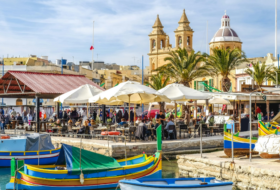
EU cell solution to hard market
Ian-Edward Stafrace, of Atlas PCC, shares how Maltese-domiciled protected cells make owning an onshore captive or carrier more accessible and feasible during this hard market
Malta continues to see higher growth in cells compared to standalone captives — by September 2021, insurance-carrying cells grew 18 per cent to 72, outnumbering both captives and non-domestic insurance undertakings. With risk managers and insurtech innovators facing common issues, the understanding of cell solutions in continental Europe has increased as companies seek alternative approaches to tackle the hard market, Brexit and higher stakeholder expectations.
Protected cells are often more capital and cost-effective than having a standalone carrier or captive. The difference is even starker within the EU, where the costs of a more robust regulatory environment are significantly mitigated when shared within a protected cell company (PCC) structure.
Hard market
With higher premiums and reduced insurer appetite and capacity, EU onshore cells provide an increasingly feasible solution for those wishing to finance their risks better or sell insurance. As a leading independent PCC, Atlas has experienced this surge.
Our independence gives us a unique perspective with various prospects coming through leading insurance management companies, consultancies, reinsurance companies, or directly.
Cells are ideal for short-tail risks (such as property and business interruption), especially when clients have improved their risk management yet primary insurers still increase rates or restrict cover or capacity.
Financial lines on a claims-made basis have grown in popularity as one of the classes most affected by the hard market.
Low limit consumer lines, such as gadget insurance and extended warranties, are also prevalent. Cells provide insurtechs, distributors and managing general agents with the possibility to become carriers, which stabilises capacity and provides more control.
Rather than depending on commissions, they can benefit from retaining underwriting profits. Some have reinsurance capacity lined up, but no willing fronting insurers to provide market access.
Cells targeting consumer business are a niche for Atlas, with its origins, expertise and risk appetite as a leading local insurer in Malta with a 100-year history. Atlas became the first traditional insurer to convert to a PCC and the first licensed PCC in Malta.
Cells based in Malta can be ideal digital insurers. PCCs can be seen as sandbox platforms to experiment, incubate, launch and scale new technology-driven business models. Some organisations see cell structures as a faster, simpler and less expensive means of covering their immediate needs and gaining experience before moving on to establish a single-parent captive. Most cell owners later prefer to remain within the efficient simplicity and comfort of the PCC.
EU & UK access
Malta is the only EU member state with insurance protected cell legislation providing cells with direct access to the EEA single market.
Atlas also provides access to the UK market and is possibly the first PCC to submit a branch application to the UK Prudential Regulation Authority. While this is processed, the existing and new cells it hosts carry on writing new business in the UK under the Temporary Permissions Regime.
Fronting
Fronting partners can provide additional value, simplifying compliance requirements. However, they are not immune to the hard market and can be increasingly selective.
Fronters also add costs to the programme, which affects feasibility, especially when premiums are below their rising minimums.
EU direct writing cells are slightly more costly to manage than pure reinsurance cells. However, when considering the avoidance of fronting fees, they can be more cost-effective, especially when local compliance and outsourcing needs in the country of risk are limited, or are handled by intermediary subsidiaries of the cell owner.
Shared substance and resources
With their shared economies of scale, Maltese PCCs provide substance and resources. While taking strength from its EU-based regulatory regime, PCCs in Malta offer unique benefits under Solvency II. They give confidence in being onshore in the EU, though without a standalone company’s complexities, costs and time.
As a result of the Organisation for Economic Cooperation and Development’s base erosion and profit shifting action plan, as well as following Brexit, insurers are increasingly expecting to have adequate on-the-ground staff and key function holders.
PCCs can significantly help address substance as cells form part of a broader single entity providing shared board, governance and key functions in Malta.
Atlas PCC’s active core is focused on the traditional non-life domestic insurance business in Malta, where Atlas retains an almost 20 per cent market share, naturally providing ample substance to the PCC.
It has a staff complement of over 190, multiple branches and offices, and probably the largest Solvency II core capital surplus core for EU-based PCCs open to third-party cells.
PCCs can produce a single Own Risk Solvency Assessment for the entire PCC required under Solvency II. The same applies to reporting and disclosure requirements, with one Regulatory Supervisory Report and Solvency Financial Condition Report, and all resources in place to meet other quarterly and annual reporting as one single legal entity.
Malta fully adopts the latest International Financial Reporting Standards, including the new IFRS 17.
Whilst this may be challenging to implement for standalone insurers, PCCs help facilitate compliance as they implement it for their other cells, and in Atlas’ case, for its active core.
Capital efficiency
No minimum capital requirements apply to individual protected cells, as these apply at an overall company level. A cell owner will typically only need to invest own funds equivalent to the cell’s notional solvency capital requirement, which, with small undertakings, often falls far below the typical standalone insurer minimums. At all times, cells retain complete legal protection of their assets from liabilities of the core or other cells.
Brokers and global captive managers
Atlas PCC’s team has built expertise in this specialised sector, having assessed and implemented various direct third-party, reinsurance and captive cells.
We are firmly independent yet have excellent relationships with brokers and insurance management companies. Besides the cells we host and manage directly, we host cells for clients of various leading global captive managers with day-to-day management outsourced back to them.
Middle-market brokers are increasingly interested in protected cell solutions. They are becoming more proactive when the hard market rightly causes their most significant clients to question their risk financing. The collaboration with such brokers is mutually beneficial. Brokers are closer to their customers in their countries and provide compliant local services in their language. PCCs like Atlas are breaking the barriers to entry for captives and insurance start-ups, continuously fostering innovation and improved risk financing.
This article was first published in Captive Insurance Times: https://bit.ly/3pYNaVy


